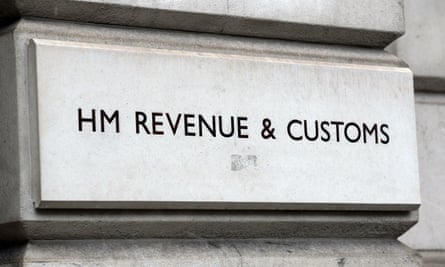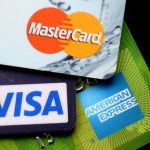Earn on everything
Cashback returns a percentage of the cost of a purchase to you later, similar to a discount after the fact. You can earn it through your bank, or a third-party scheme, and on all kinds of purchases, from pet food to insurance.
All schemes work in broadly the same way: a retailer pays a referral, affiliate or usage fee to a partner for each purchase that happens as a direct result of their advertising, offer or technology. The partner takes a cut of the fee, then passes the rest on to you, usually a few weeks later.
The sums available vary wildly between schemes and retailers but most are in the 1-10% range. It may not sound a lot but it can add up over a year.
Some providers also offer limited boosts on top of the standard rates, which can add a couple of quid to the reward.
 View image in fullscreenManufacturers and retailers sometimes offer cashback for buying specific products, such as cameras, laptops and other electricals. Photograph: Dimitrios Tsalkanis/Alamy
View image in fullscreenManufacturers and retailers sometimes offer cashback for buying specific products, such as cameras, laptops and other electricals. Photograph: Dimitrios Tsalkanis/Alamy
Manufacturers and retailers sometimes offer cashback for buying specific products, such as cameras, laptops and other electricals, or on contracts such as mobile phones. This cashback usually comes in the form of store credit, vouchers or prepaid cards but typically requires you to actively claim it back after the purchase, which can be laborious.
Pick a card
A credit or debit card that offers cashback, or “rewards”, can be very useful. There are two types: those that offer a flat rate back on every purchase, and those that have offers for specific retailers.
In the credit card market, American Express cards typically offer the highest rates, with the chance to get back up to 5% of your first £100 of spending on its Platinum Cashback Everyday card for the first three months of membership. After that it reverts to 0.5% on spending up to £10,000 and 1% above that figure. However, you have to spend at least £3,000 a year on the card to qualify, and Amex isn’t accepted everywhere.
Many cards have introductory offers and other quirks. For example, the Asda Money credit card is offering 10% cashback at Asda for the first 90 days, then 1% of your Asda spending after that, plus 0.3% on spending elsewhere. The cashback comes as credits to spend at the retailer.
There are also debit card deals, such as Lloyds’ Everyday Offers. That provides retailer-specific cashback, which you must activate in its various banking apps before making a purchase.
Rates vary but can be as much as 10%. The money is repaid into your account for you to spend as you wish. Take a look to see what your current account provider offers.
Shop via an app
There are third-party schemes – run via apps – that link to your credit or debit card, and automatically credit your account with cashback from specific retailers by tracking your transactions in-store and online.
One of the big ones is Airtime Rewards. It credits cashback you earn as money off your phone bill – as long as you’re with one of the big networks – rather than cash.
TopCashback’s In-Store Offers lets you earn money on your in-store purchases at a more limited range of retailers. You need to register your credit or debit card and activate offers before you shop.
 View image in fullscreenOne cashback scheme rewards you with money off your phone bill rather than cash. Photograph: Liubov Levytska/Alamy
View image in fullscreenOne cashback scheme rewards you with money off your phone bill rather than cash. Photograph: Liubov Levytska/Alamy
Specialist cashback sites, such as Quidco and TopCashback, offer a range of rates specific to different retailers. Browse the site, find the offer you want, click through to the retailer’s site and make your purchase. The cashback site then gets a referral fee, which it tracks and pays out, typically after a couple of months, minus its cut.
This week, Quidco was offering up to 16.5% back on spending at Currys – a rate of 1.1% was available on all shopping at the store, while you could earn higher payments on selected items.
Mix and match
You can often maximise your cashback by combining offers. For instance, a reward payment card and Airtime Rewards can often be used with an offer from a cashback site or a manufacturer. This means you can get paid back multiple times from different providers for the same purchase. Some may offer discount codes, as well as cashback, saving you even more.
On cashback sites, you can often maximise the rates you get by subscribing to a premium tier
For example, for a qualifying purchase at Argos you could get 2% cashback from Airtime Rewards, up to 4.25% from TopCashback, and cashback from a payment card, such as 5% from Lloyds’ Everyday Offers.
On cashback sites, you can often maximise the rates you get by subscribing to a premium tier. The site typically keeps the first £5 or so of cashback earned each year in exchange for a higher percentage on transactions. Whether that ends up being good value depends on the rates.
Cashback can also be paid in vouchers for retailers or services with an extra percentage offered over cold hard cash, typically in the 2-15% range.
Don’t be blinded by it
Do not make buying decisions purely on the basis of how much cashback you stand to gain: it can add to the cost, as someone in the chain has to pay for the kickback that makes it possible. You could find the same item cheaper elsewhere or, with a voucher code, even with the same retailer.
The same goes for choosing a credit card: if you pay off your borrowing every month, then opting for the highest rate of cashback makes sense, but if you don’t, you should choose a card with a low interest rate on purchases instead.
Don’t bank on it
Another reason to not be led by cashback is that when you use online schemes, transactions do not always result in payments, as whether to pay the cashback scheme you’re using is typically up to the retailer’s discretion.
 View image in fullscreenDo you need to think about tax? Photograph: Kirsty O’Connor/PA
View image in fullscreenDo you need to think about tax? Photograph: Kirsty O’Connor/PA
Your payment may also be invalidated by using offer codes, or if a retailer decides your visit did not come via a cashback site.
That means cashback should never be relied upon, and should be considered a bonus.
Do I have to pay tax on cashback?
Cashback and similar schemes for retail purchases are generally seen as akin to discounts when it comes to tax, rather than treated as interest. Therefore, HMRC says: “In general, ordinary retail customers purchasing goods, investments or services at arm’s length will not be liable to income or capital gains tax in respect of any commission, discounts or cashbacks received by them.”





